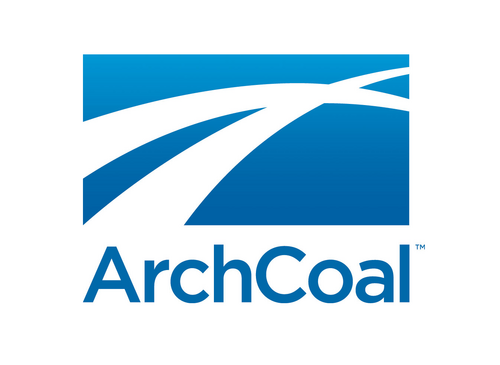D.C. Circuit Rejects Arch Coal’s Challenge to Black Lung Cases Left by Patriot Coal Bankruptcy (Arch Coal, Inc. v. Acosta)

Last week the U.S. Court of Appeals for the D.C. Circuit issued one of its rare decisions relating to black lung benefits. The decision will likely make future D.C. Circuit decisions even more rare—the D.C. Circuit held that it did not have jurisdiction over the case.
Facts
The D.C. Circuit’s decision in Arch Coal, Inc. v. Acosta (slip op. here) arose from an injunctive action that that Arch Coal filed in the U.S. District Court for the District of Columbia.
As mentioned here when the complaint was filed a couple of years ago, Arch Coal’s challenge relates to a history of corporate mergers and spinoffs in the coal industry during the 2000s. Without getting into the details of the entire history, certain coal companies that were once owned by Arch Coal eventually became owned by Patriot Coal. After the 2015 bankruptcy of Patriot Coal, questions arose about what company was responsible for the black lung benefits of miners who worked for these companies.
The U.S. Department of Labor’s Office of Workers’ Compensation Programs issued a public bulletin instructing its staff—who are the initial decisionmakers on which coal companies should be named as “responsible operators” for black lung claims—to name Arch Coal in certain situations. See BLBA Bulletin No. 16-01.
After Arch Coal started getting notices about these claims, it went straight to U.S. District Court and filed an injunctive action arguing that the bulletin was illegal and that Arch Coal lacked any other remedy at law.
The U.S. District Court didn’t buy it. On March 16, 2017, District Judge Bates held that Arch Coal had to assert its challenges through the typical benefits adjudication process before the U.S. Department of labor and could not go straight into U.S. District Court. Because Arch Coal had not done so yet, Judge Bates held that the court lacked jurisdiction to consider whether the bulletin was legal. See Arch Coal, Inc. v. Hugler, 242 F. Supp. 3d 13 (D.D.C. 2017).
This was the case even though the number of cases that Arch Coal had been named in grew from 70 in April 2016 when it filed its complaint to 175 by January 2018 when Judge Bates held oral argument.
D.C. Circuit Decision
On April 27, 2018, the D.C. Circuit agreed with the District Court’s decision that the courts lacked jurisdiction until Arch Coal properly channeled its claims through the Black Lung Benefits Act’s (BLBA) usual adjudicative process.
An opinion written by Senior Circuit Judge Harry T. Edwards (and joined by Circuit Judges Patricia Millett and Robert L. Wilkins) explained that “The BLBA’s comprehensive scheme of administrative review, followed by judicial review in a court of appeals, makes it clear that Congress implicitly precluded district court jurisdiction over the claims to which the BLBA applies.”
The D.C. Circuit explained that the bulletin was not the sort of formal rule for which a pre-enforcement challenge is appropriate and that because Arch Coal could challenge being named in the normal process of adjudicating claims that its challenge was not wholly collateral to the normal process and was not a challenge to a final agency action.
Instead, “the suit in District Court was an attempt by Arch to jump the gun and make an end run around the BLBA’s statutory scheme.”
Arch Coal argued that the normal process would not be meaningful because DOL would not give it adequate discovery. The D.C. Circuit said that this argument too was “premature” and that if Arch Coal did not receive adequate discovery then that could be the subject of a separate appeal. Similarly, Arch Coal’s burden of defending these claims on the merits did not change the analysis. (Arch Coal said that each claim costs an average of $10,000 to defend.)
Analysis
The outcome of this case is not surprising and is consistent with my prediction when the case was filed.
Practically speaking though, this outcome is going to shift the field of battle from federal court to individual claims. This can be frustrating for black lung claimants and their attorneys because these individuals almost never have any stake in the question of which company should be named, but when a “responsible operator” issue is in dispute, the case can become more complex and burdensome for everyone involved. ALJs will rarely bifurcate claims so coal miners and their widows will have to litigate their medical condition against Arch Coal and its lawyers—certainly part of the $10,000 that Arch Coal said it spends on each claim is to develop expert medical evidence to challenge the claimant’s position—while the uncertainty of whether Arch Coal should even be named is disputed between Arch Coal and the Department of Labor.
But as annoying as this can be, as the D.C. Circuit correctly held, there is “no such option under the law, however” to allow for broad, preemptive review. The best that claimants can hope for is that one lead case will emerge through the typical process and be somehow expedited so that the underlying legal question can be focused into one case instead of the hundreds of Patriot -> Arch cases. (The D.C. Circuit cited one potential lead case. Creech v. Apogee Coal Co., OALJ No. 2016-BLA-06034. I’m sure many readers of this have their own cases that could rise to the front.)
Now the focus of liability for the former Patriot Coal cases will turn from Article III courts in D.C. to the individual claims of Mr. Creech and others.
One Response to “D.C. Circuit Rejects Arch Coal’s Challenge to Black Lung Cases Left by Patriot Coal Bankruptcy (Arch Coal, Inc. v. Acosta)”
[…] And as readers of this blog know, this comes at a time when black lung disease is rampant and many large coal companies have gone bankrupt pushing more claims onto the Trust […]
Comments are closed.